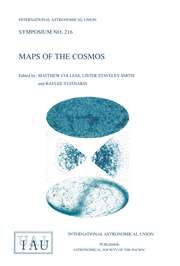No CrossRef data available.
Article contents
CMB: Anisotropies Due to Non-Linear Clustering
Published online by Cambridge University Press: 25 May 2016
Extract
Most of the studies on the anisotropy expected in the temperature of the cosmic microwave background (CMB) have been based on linear density perturbations. The anisotropies at angular scales ≥ 1o (horizon at recombination) are preserved during the evolution of the universe, whereas for smaller scales new effects can appear, generated during the non-linear phase of matter clustering evolution: i) the Sunyaev-Zeldovich effect due to hot gas in clusters (Scaramella et al. 1993), ii) the Vishniac effect (Vishniac 1987) due to the coupling between density fluctuations and bulk motions of gas and iii) the integrated gravitational effect (Martínez–González et al. 1994) due to time-varyng gravitational potentials. A single potential φ(t, x), satisfying the Poisson equation, is enouph to describe weak gravitational fields associated to non-linear density fluctuations when one considers scales smaller than the horizon and non-relativistic peculiar velocities. The temperature anisotropies, in a flat universe, are given by the expression (Martínez–González et al. 1990)
- Type
- Part II: Contributed Papers
- Information
- Copyright
- Copyright © Kluwer 1996


